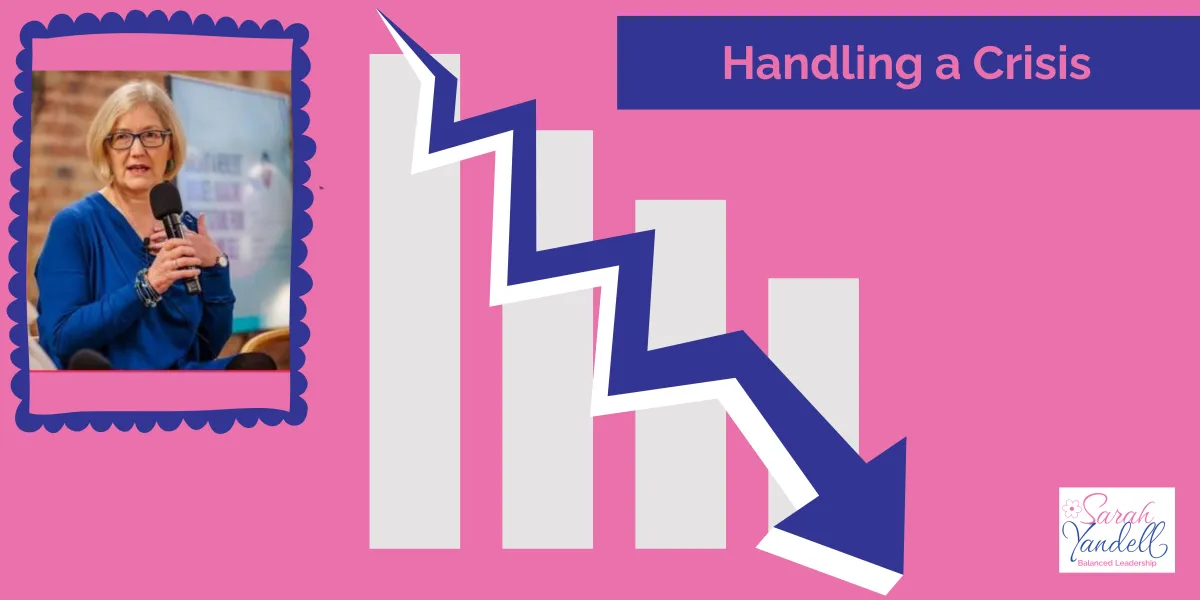
Handling a Crisis
What to do in a Crisis
Crisis is something that we have all lived through with Covid affecting everyone in different ways. In fact it is interesting how political leadership in different countries varied in how the challenge was addressed.
The strongest leaders in my mind were both women; Jacinda Ardern and Angela Merkel. They both followed scientific guidance, prioritised public health and communicated clearly with their people. While Ardern took swift, decisive action with a strong public focus, Merkel was data-driven and pragmatic.
Crisis Planning
Being prepared for a crisis is essential for small business owners. You need a written simple plan which will help you respond quickly when things go wrong.
This should include:
➡️ Risk Assessment - what could go wrong e.g economic downturn, supply chain breakdown?
➡️ Response - who does what?
➡️ Communication Plan - how will you talk to staff, customers, suppliers?
➡️ Supply Chain - identify alternative suppliers & establish strong relationships with key suppliers
➡️ Talk to your customers - loyal customer are your best asset, so keep them informed
➡️ Know your legal and insurance options
➡️ Learn from each crisis and use this learning in oder to prepare better for the future
You then need to create a financial safety net as cash flow is normally the biggest challenge during a crisis. Revenue and profit can be high or low; but if you have no cash you don’t have a business. It is also essential to train and empower your team so they can adapt quickly,
How to plan for a future crisis when launching a business
Crisis isn’t the first thing people normally think about when they first launch a business but when you start a business and then grow it, external factors always need to be taken into account. Some things can be controlled but others can’t and it is these unknowns that are the ones that you will have to react to and find a way through.
Of course, it helps if you take into account worst case scenarios when you are planning your business growth. In my first business I used scenario analysis which is a great way of testing different external factors on your business and ensuring you know the most important numbers that need to be measured.
Using Scenario Analysis
Scenario Analysis involves imagining different plausible future situations (scenarios) — especially ones involving risk — and then evaluating how your business would respond to each. It helps you identify vulnerabilities and opportunities before they happen.
I used base case, best case, and worst case modelling when I set up my first business. The base case is what we felt comfortable about achieving and were budgeting for; the best case was high revenue with low disruption and the worst case was much lower sales than expected. By changing key information it was easy to see what the effect on sales, costs and margin as well cash flow would be in each situaion.
What I hadn’t planned for was that we would over achieve on our best case scenario by a huge margin! So although the best case was high revenue, we actually created ourselves another challenge; which was operational as we were recruiting people a lot quicker than we planned to and had not put in any processes at all!
We turned over £500k in our first year! Great problem to have and all down to Google introducing pay per click advertising (my planning was around print and banner ads in the early days of the internet in 2002)
Handling the 2008 Financial Crisis
By 2008 we had a large team with around 10 people working in the travel centre on the phones, mainly booking European short breaks out of the UK.
The phones stopped ringing overnight.
Our people were our most important asset, but we knew quickly that we would not be able to keep even half of them if we were going to survive as a company. So we had to control what we could control. We needed to speak to our whole team on a 1-2-1 basis; both the call centre and the back office and be open with them.
We had to be honest. And ultimately we had to be decisive.
In a lot of ways we were lucky as most of the team were young, they had worked in hospitality, and had done a lot of travelling.
The Result
🔷 Some left voluntarily and did more travelling
🔷 Some accepted a pay cut
🔷 Some were made redundant
As a leader of your own business, being decisive is essential and moving fast, early and showing conviction is the best way to take your people with you.
Register to receive my weekly email; The Resilient Founder where I'll be sharing honest reflections, lessons learned, and practical strategies from my own journey: co-founding and scaling an £8 million business… while navigating motherhood, financial challenges and self-doubt.
And if you are ready to take the next step, you will find my FREE Webinar will help you.
